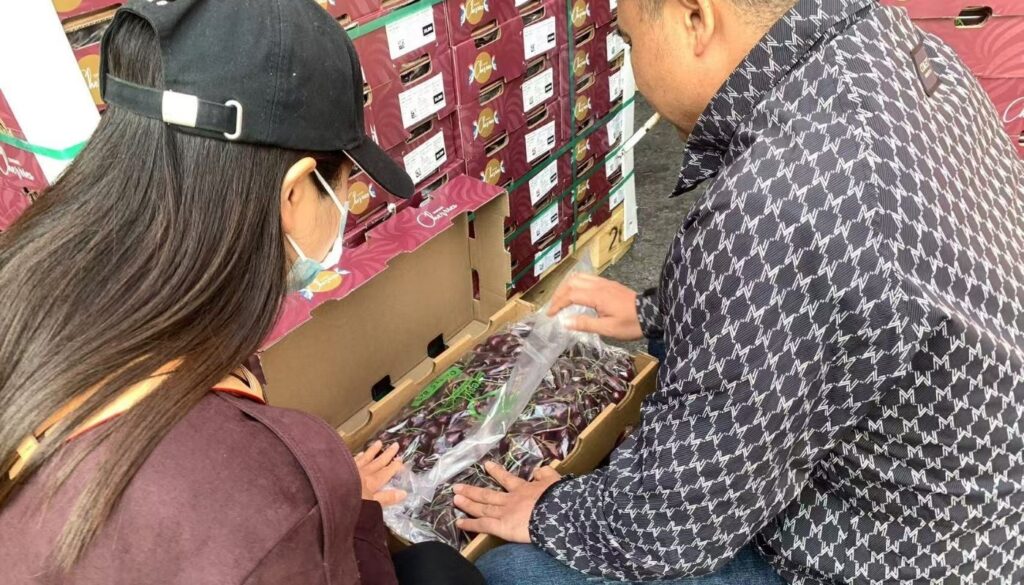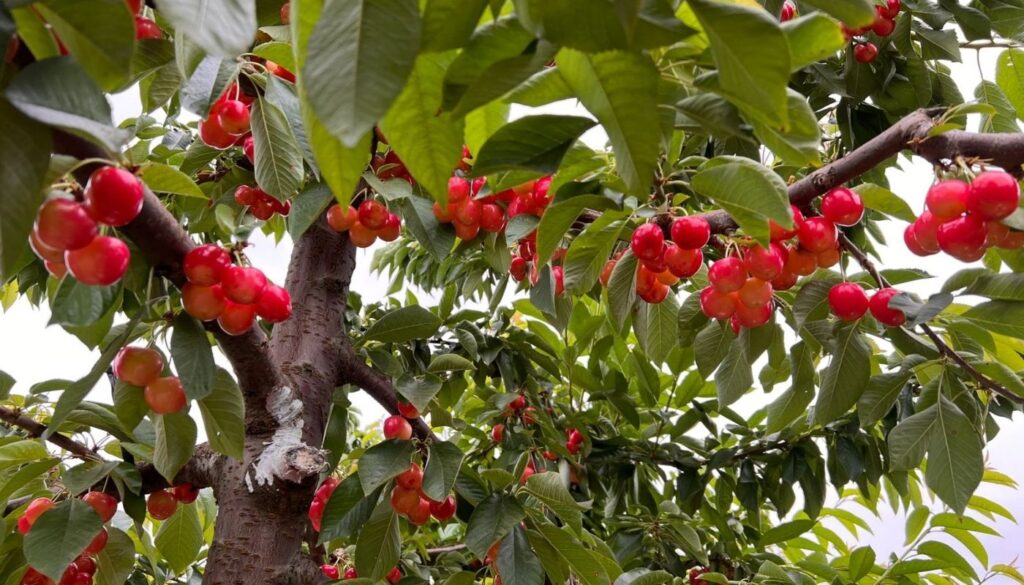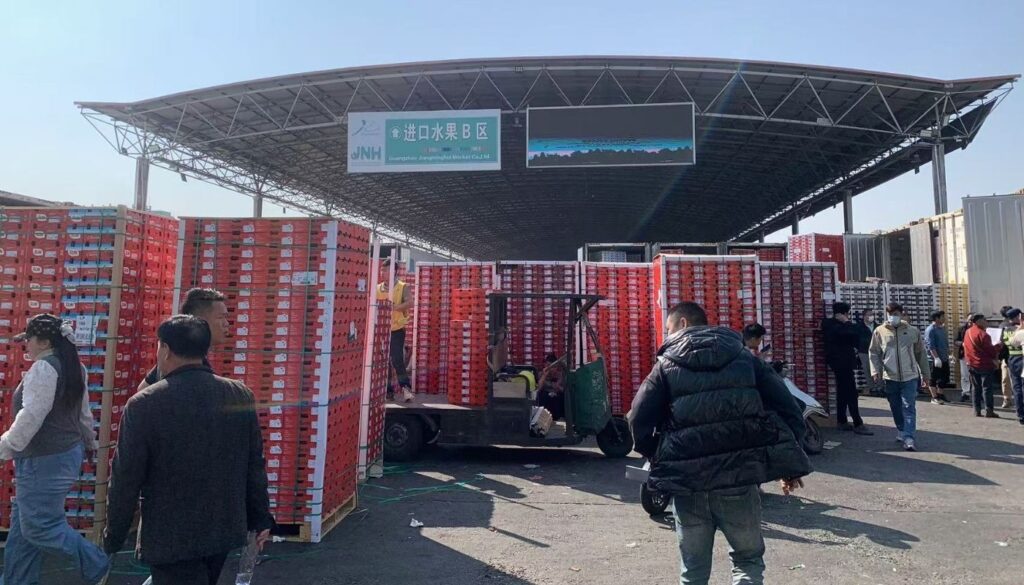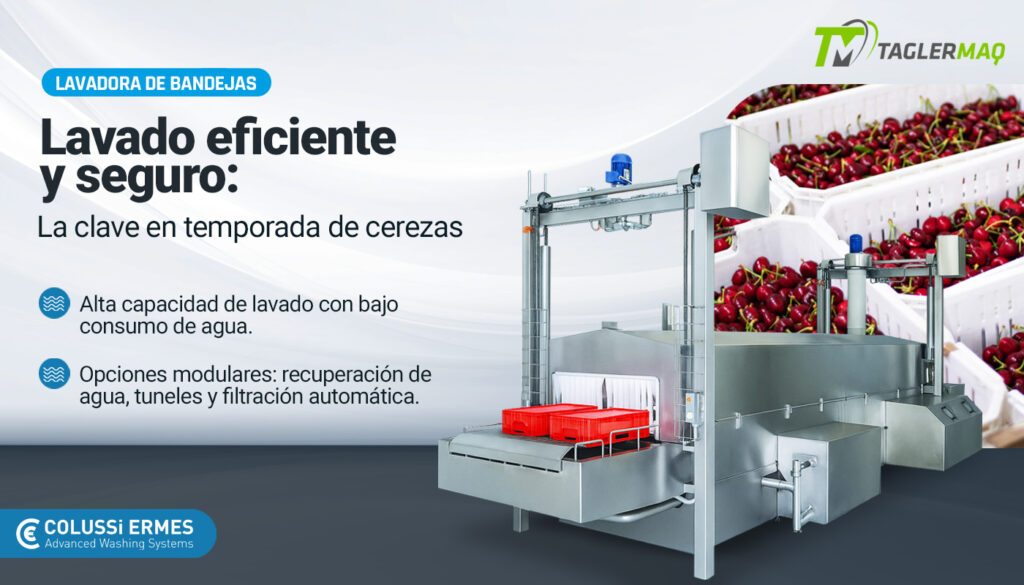Cherry growers have been strongly affected by climate change, facing multiple environmental challenges, such as rising average temperatures, increased ultraviolet radiation, excess solar radiation, unusual rainfall, extreme weather events, among others, which have significantly impacted the production and quality of cherries.
Abiotic stress associated with high temperatures and excess radiation causes a decrease in the net photosynthetic activity of the plant, reducing the growth rate of the crop and the fruit. In addition, it increases tissue dehydration, activates senescence and abscission processes of structures, affects the quality of flowers and fruits, increases the presence of double fruits and fruits with deep sutures, and causes structural damage to tissues due to sunstroke. These are some of the reasons why the production and quality of cherries have decreased, directly affecting the profitability of the crop.
It is in this context that IBITERRA presents IBIACTIVE SUN® as an excellent option to protect cherries from damage caused by high temperatures and excessive solar radiation. IBIACTIVE SUN® is a sunscreen with a high calcium content (33% CaO) combined with low molecular weight organic acids that helps prevent damage from sunstroke. IBIACTIVE SUN® acts by forming a protective film which reflects light and reinforces the cuticle of the fruit and foliage, reducing the harmful effect of solar radiation on the skin of the tissues. IBIACTIVE SUN® reduces dehydration due to high temperatures, regulating the internal temperature of the tissues because it keeps the transpiration flow active. Additionally, it improves the post-harvest of the fruits by reducing the permeability of the cuticle, therefore, reducing water loss through transpiration and sugar loss through respiration.
IBITERRA, with the aim of demonstrating the effectiveness of IBIACTIVE SUN® as a sunscreen, conducted two trials under a completely randomized experimental design.
The first trial was carried out in a commercial orchard of Lapins cherry trees in full production, located in the commune of San Fernando, O'Higgins Region, Chile. The incidence of double fruits was assessed by counting the total fruits and double fruits present in two lateral arms for each exposure face of the trees selected by treatment. The treatments were: treatment T0 (Commercial Control) included the application of hydrolyzed kaolin at 1.25% and treatment T1 included the application of IBIACTIVE SUN® at 1%. Both treatments were applied on two different dates, December 30 and January 14.
Table 1 shows that the plants treated with the different sunscreens had a low incidence of double fruits. However, the plants that received the application of IBIACTIVE SUN® showed a clear tendency to a lower incidence of double fruits on both exposed sides.

The second trial was carried out in a commercial orchard of Lapins variety cherry trees that was in full production, located in the commune of San Vicente, O'Higgins Region, Chile. Where the normalized vegetation index (NDVI) and the leaf temperature were evaluated; for which the leaf temperature was recorded after the last application of two leaves per plant according to the exposed side. The treatments were: Absolute Control (T0), Commercial Control based on vegetable extracts (T1), IBIACTIVE SUN® at 1% (T2) and the Commercial Control based on calcium carbonate (T3). Of all the treatments, two applications were made on the following dates, December 27 and January 12.

The application of IBIACTIVE SUN® significantly decreased the average leaf temperature compared to the absolute control treatments (T0) and the commercial control based on calcium carbonate; a decrease of 2.55°C was observed compared to those plants that did not receive sunscreen applications.
On the other hand, throughout the study, the normalized vegetation index was monitored (Figure 1), where it was observed that the application of sunscreens based on algae extracts and IBIACTIVE SUN® significantly improved the vigor condition of the plants compared to the absolute control, this is consistent with the temperature records indicated above.

In conclusion, the application of IBIACTIVE SUN® allows to reduce the presence of double fruits, significantly reduces the leaf temperature of cherry trees and improves the vigor of the plants. With IBIACTIVE SUN® you protect your plants from radiation and high temperatures.








